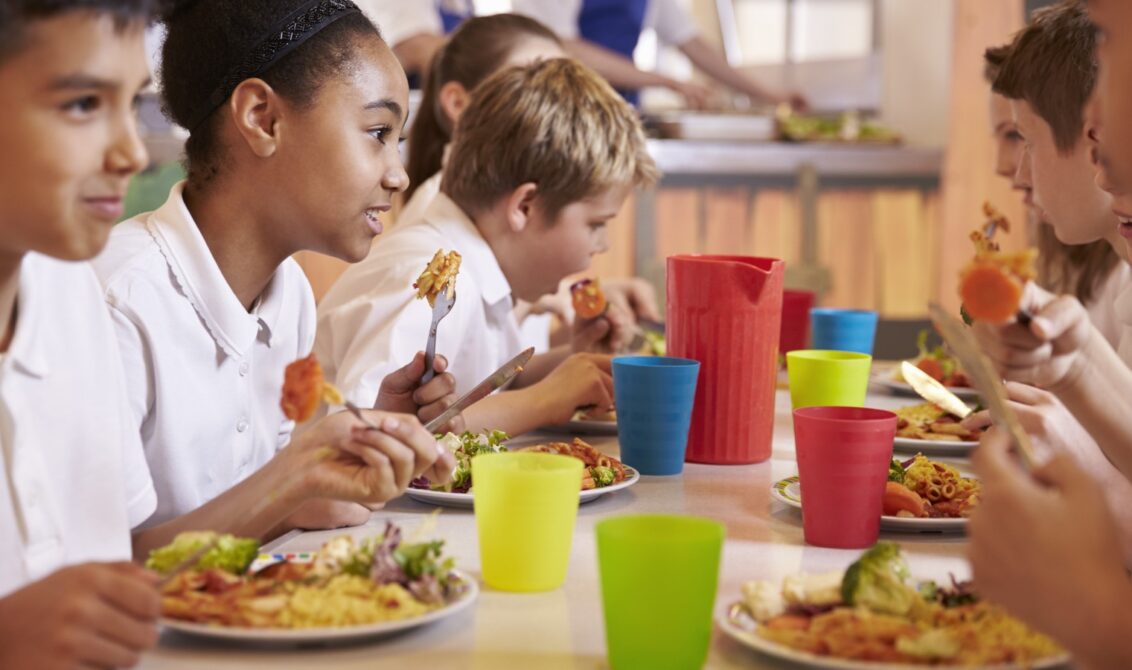
School dinners have always been a topic of discussion between parents and educators. The conversation often centres on finding meals that are healthy and affordable. However, lunches still have to appeal to a wide range of students.
As environmental concerns grow, there’s a new debate. Should schools provide vegan lunches? Should animal products be banished from school menus? Let’s have a look at both sides of this contentious debate.
What are the benefits of vegan school lunches?
More and more people are embracing the vegan lifestyle or at least considering it. The number of participants in Veganuary went from 1000 to 600,000 in just eight years.
As veganism becomes more mainstream, should schools embrace this opportunity to go animal-free? Let’s take a look at some of the benefits of a plant-based lunch menu:
1. Environmental impact
The meat industry has a big impact on the environment. Livestock farming requires substantial land for grazing and feed production. In many regions, the result is deforestation, the disruption of local ecosystems, and the resultant loss of biodiversity. When schools buy meat products, they are supporting these practices. Eating more vegan meals reduces the need for livestock farming. In fact, the latest research shows that you can decrease your carbon footprint by up to 75% with a plant-based diet.
Schools that introduce vegan lunches can become a vital part of the environmental movement. They could encourage students to become more eco-conscious and consume fewer animal products. Even if children eat meat at home, hundreds of children having a plant-based lunch five days a week will have a significant impact on their individual carbon footprint, as well as your school’s carbon footprint.
2. Health benefits
Certain animal products are high in fat, leading to elevated cholesterol levels. Over time, this increases the risk of heart disease and strokes. Getting children to follow a more plant-based diet ensures they eat more healthy, unsaturated fats. And, with childhood obesity on the rise around the world, and almost 1 in 5 children globally classed as overweight, encouraging children to eat a more plant-based diet could have a beneficial impact on their health.
There are also the following benefits:
- Lower blood pressure due to a diet higher in nutrients and antioxidants
- Improved mood from lower levels of the arachidonic acid found in non-vegan meals
- Better digestive health as a vegan diet encourages good bacteria in the intestines
Vegan diets could also alleviate mental health issues. 84% of children are anxious about climate change, leading to low mood and sleeping problems. Taking action could make them feel less powerless to stop the issue and help them cope with their emotions.
3. Cultural and dietary inclusivity
Rules around meat are an important part of many religions and cultures around the world. For example, Hindus and Sikhs have strong traditions of vegetarianism, and Muslim and Jewish people don’t eat pork. What’s more, in Jewish tradition, meat and dairy can’t be served together.
In a multicultural school, a vegan canteen circumvents these culture-based food rules and means that your students can share a meal together at lunchtime, regardless of their background.
What are the drawbacks of vegan school lunches?
While veganism comes with many advantages, there are some undeniable downsides. Here are some things to consider before you make a decision about your school lunch menu:
1. Nutritional concerns
Alongside health benefits, veganism also brings issues like protein and calcium deficiencies. Vegan adults usually monitor their health and take particular supplements, for example vitamin B12. It’s important for growing children to get all the vitamins, calcium and iron they need – and unless your vegan menus have been carefully designed by a nutritionist, they won’t necessarily fulfil all your students’ nutritional needs.
2. Palate sensitivity
It can be challenging to persuade young children to try new food. Children have sensitive palates, and it can be hard to build variety into a vegan diet while still producing lunches that children will be willing to eat. Of course, there are lots of meat-substitutes out there, for example vegan nuggets and vegan burgers, but most of these ultra-processed foods have limited nutritional value.
So, there’s a risk that children will opt for packed lunches to avoid the canteen if you make the switch to a plant-based lunch menu in your school cafeteria.
3. Opposition from parents and students
Veganism is mainly about ethics, whether that’s trying to minimise your impact on the environment, or concern for animal welfare. However, veganism has become a touchstone culture war issue.
So, there could be a lot of opposition from parents and even older students, who may take offence to schools deciding what’s right and wrong for student diets. You might even have to deal with formal complaints and student campaigns to return meat products to school menus.
4. Higher costs
Switching your school kitchens to be completely vegan can come with hidden costs, and taking meat out of the budget might not balance the books. Many vegan substitutes, for example nut butter or plant milks, are more expensive than regular butter or milk. Even bulk suppliers will charge more for plant-based meats and dairy alternatives. The extra costs associated with a vegan menu could divert funds from other educational resources and facilities in your school.
What’s on the menu?
School lunch menus are a divisive topic. Many educators feel they have a duty to make lunches healthier and more eco-friendly. But not all students will benefit from vegan meals and some of them may oppose the changes to the lunch menu. Share your thoughts on the benefits and downsides of vegan school meals in the comments!
Read more from our Big Debate series
Explore the arguments for and against school uniform, and find out why some people think homework should be banned. Dive into the debate on smartphones in schools, and learn why some countries believe it’s better for children to start school age seven.
Subscribe to our blog
If you’d like to stay up to date with our latest articles, why not subscribe to our blog? You’ll get a fortnightly roundup of the articles you’ve missed straight to your inbox, plus links to free teaching resources.

